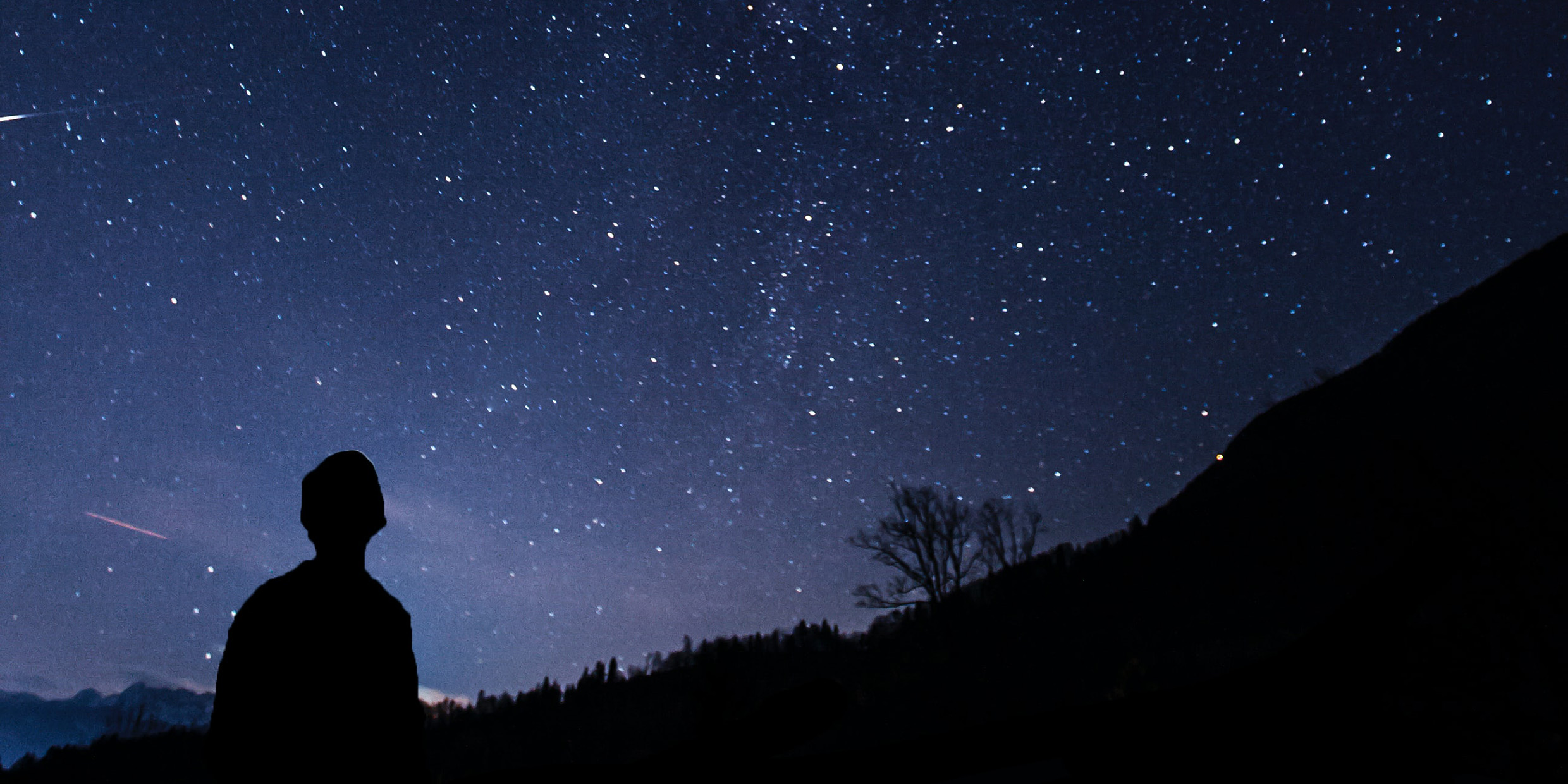Originally published 16 September 2003
I first became familiar with the stars on the sleeping porch of my grandmother’s house on Ninth Street in Chattanooga, Tennessee, during the early 1940s.
A screened sleeping porch might then be found attached to any Southern home of a certain vintage and substance, usually on the second story at the back. On sultry summer nights, you could move a cot or daybed onto the porch and take advantage of whatever breeze stirred the air.
I slept there when I visited because it was the only place to find a spare bed. I was usually alone in that big spooky space, with only a thin wire mesh separating me from the many mysteries of the night.
Far off in the house I could hear the muffled voice of the big Motorola radio in the parlor, where grownups listened to news of the war or the boogie-woogie tunes of the “Hit Parade.” Outside was another kind of music, nearer, louder, pressing against the screen, which seemed to come from everywhere and nowhere, a million scratchy fiddles, out-of-key woodwinds, discordant timpani. These were the cicadas, crickets, whippoorwills, and tree frogs of the Southern summer night, but to me at that time they were the sounds of the night itself, as if darkness had an audible element.
Some nights the distant horizon would be lit with a silent, winking illumination called heat lightnin’. And closer, against the dark grass of the badminton court, the scintillations of fireflies — lightnin’ bugs — splashed into brightness.
The constellations of fireflies were answered in the sky by stars, which on the evenings when the city’s lights were blacked out for air-raid drills, multiplied alarmingly. I would lie in my cot, eyes glued to the spangled darkness, waiting to hear the drone of enemy aircraft or see the flash of ack-ack. No aircraft appeared, no ack-ack tracers pierced the night, but soon the stars took on their own fierce reality, like vast squadrons of alien rocket ships moving against the inky dark of Flash Gordon space.
In time I came to recognize patterns, although I did not yet know their names — the Scorpion creeping westward, dragging its stinger along the horizon; the teapot of Sagittarius afloat in the white river of the Milky Way; Vega at the zenith; the kite of Cygnus. As the hours passed, the Big Dipper clocked around the Pole. And sometimes, in late summer, I would wake in the predawn hour to find Orion sneaking into the eastern sky, pursuing the teacup of the Pleiades.
Later, my father taught me the names of constellations, as we stood together in the backyard of our home in Chattanooga, gazing upward into a sea of stars. He told me of the lovers Andromeda and Perseus, and the sea monster Cetus; of Andromeda’s boastful mother, Cassiopeia, and beleaguered father, Cepheus; of the wood nymph, Callisto, and her son, Arcas, placed by Zeus in the heavens as the Big and Little Bears; of the missing Pleiad, the Seventh Sister, carried away by one of the Seven Brothers of Ursa Major. No child ever had a better storybook than the ever-changing page of night above our badminton court.
My father also taught me the names of stars: Sirius, Arcturus, Polaris, Betelgeuse, and other, stranger names, Zubenelgenubi and Zubeneschamali, the claws of the Scorpion. The words on his tongue were like incantations that opened the enchanted cave of night.
That’s all gone now. We have effaced the storybook of night with the sickly orange glow of unnecessary and poorly designed artificial light. It is the rare child today who can look up into the sky and see, as I did, the history of our species.
Perhaps we should organize artificial air-raid drills on cloudless late-summer nights when, for a few happy minutes by common consent, we turn off all the lights, public and private. A new generation of children could look upward and see something they have only heard about from grandparents and great-grandparents — the glorious sweep of the Milky Way pouring imagination across the night.


